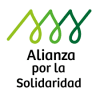Development of Preparedness and Emergency Strategy
Background & Introduction:
The Palestinian Farmers’ Union (PFU) is a broadly recognized Palestinian farmers’ network, with active Governorate Farmers’ Associations (GFAs) members that represent farmers of all agricultural sectors and communities to defend their rights, and interests, to achieve a more securing and enabling policy, business environment, and provides quality services to strengthen farmers’ skills to better produce, process and market their commodities, to better cope with shocks and changes.
In partnership with NPA, the Palestinian Farmers’ Union (PFU) is implementing a program “Empower for Response & Resilience (EFRR)” that aims to strengthen the capacity of General Farmers Associations (GFAs) to prepare for and respond to emergencies. The program focuses on building technical, leadership, and emergency management skills; facilitating access to essential agricultural inputs; restoring critical infrastructure; and enhancing GFA participation in policy and decision-making processes at local and national levels to ensure that farmers’ needs and rights are effectively represented.
CONTEXT
Since October 7, 2023, Palestinian agriculture has faced unprecedented devastation due to intensified Israeli military operations and escalating settler violence across Gaza and the West Bank, resulting in losses exceeding $1.3 billion and the widespread destruction of farmland, irrigation systems, and critical infrastructure. This crisis has been further compounded by severe displacement, restricted access to agricultural land, and the near-total collapse of food production systems. In Gaza, more than 85% of farmland has been destroyed, while in the West Bank, ongoing settler attacks and land confiscations continue to undermine Palestinian farmers’ livelihoods and access to land. Pastoral settlement expansion has overtaken over 14 % of pastoral lands. Beyond the political and military emergencies, the Palestinian agricultural sector is increasingly threatened by climate change, market volatility, and natural disasters. These overlapping shocks underscore the urgent need for a comprehensive, inclusive, and localized emergency preparedness strategy that ensures the continuity of agricultural production, strengthens food security, and enhances the resilience of Palestinian agricultural institutions and their surrounding communities.
In the absence of a national emergency preparedness or response plan from the Palestinian government or any other key actor, the Palestinian Farmers’ Union has identified a critical gap in coordinated emergency planning and readiness across Palestinian agricultural institutions. This gap highlights the lack of preparedness among Palestinian farmers to cope with large-scale disasters and emergencies that threaten their livelihoods. The absence of coordinated response mechanisms—whether from governmental bodies, civil society organizations, or local communities—underscores the urgent need to foster a shared sense of responsibility and to strengthen institutional preparedness.
Recent events in the northern West Bank have further exposed these vulnerabilities. The lack of coordination, delayed response, and limited support for affected farmers during military escalations, road closures, and extreme weather events such as frost waves revealed serious structural weaknesses in how the agricultural sector addresses emergencies. These experiences underscore the pressing need for a comprehensive emergency response plan with clearly defined roles, responsibilities, and mechanisms to ensure timely and effective intervention.
In response, the Palestinian Farmers’ Union seeks to strengthen the internal resilience and emergency response capacity of the agricultural institution by developing a Preparedness and Emergency Strategy for the Agricultural Sector. This strategy will serve as a guiding framework for the Palestinian Farmers’ Union and for the affiliated Governorate Farmers’ Association to effectively respond to emergencies impacting the Palestinian farmer’s livelihood, production systems, and national food security.
This Preparedness and Emergency Strategy is designed not only as an internal tool for the Palestinian Farmers’ Union (PFU), but also as a model and case study to be shared with the Palestinian government, local civil society organizations, and institutional partners. Each actor will be encouraged to adapt and tailor the strategy to align with their specific plans, priorities, and capacities. Through this approach, the PFU seeks to initiate and foster a national dialogue on agricultural emergency preparedness—ultimately paving the way for a coordinated, inclusive, and effective system for early response and long-term resilience in the face of emergencies.
Top of Form
PURPOSE OF THE ASSIGNMENT
The purpose of this consultancy is to develop a comprehensive Preparedness and Emergency Strategy for PFU that strengthens institutional readiness and enables PFU and its affiliated GFAs to effectively respond to a wide range of emergencies affecting agricultural livelihoods. These include armed conflict, climate-related shocks, market disruptions, and natural disasters.
The strategy should:
- Enhance PFU’s organizational resilience and emergency coordination capacity.
- Provide practical frameworks and tools for GFAs to assess risks, plan responses, and support recovery.
- Institutionalize inclusive, gender-sensitive, and community-led approaches to emergencies response.
- Strengthen GFA representation in local and national emergency and agricultural policy platforms.
SOPE OF WORK
The consultant will undertake the following responsibilities:
- Conduct a participatory risk assessment involving PFU, GFAs, and relevant stakeholders.
- Map existing emergency response mechanisms, challenges, and capacities.
- Identify and analyze the main vulnerabilities and needs of Palestinian farmers in emergencies.
- Develop a comprehensive strategy document with detailed recommendations, operational procedures, and coordination mechanisms.
- Ensure the strategy aligns with national emergency plans, humanitarian standards, and PFU’s mission.
- Integrate gender and inclusion considerations throughout all phases.
DELIVERABLE
- Inception Report: Detailing methodology, tools, timeline, and stakeholder engagement plan.
- Risk and Capacity Assessment: Findings from consultations and analysis.
- Draft Emergency Preparedness and Response Strategy: In English and Arabic.
- Validation Workshop: Presentation of findings and draft strategy to PFU and stakeholders.
- Final Strategy Document: Incorporating feedback and inclusive of operational plan and annexes.
Please submit the proposal (separate technical & financial offer) and requested documents by inhaled envelopes to the Palestinian Farmers Union headquarters (al-Bireh, close to the representative office of the Netherlands) no later than. 3/6/2025.
Attached is TOR for review.
For any questions, feel free to contact the Project Coordinator:
Amjad Anabtawi
0566119055





















